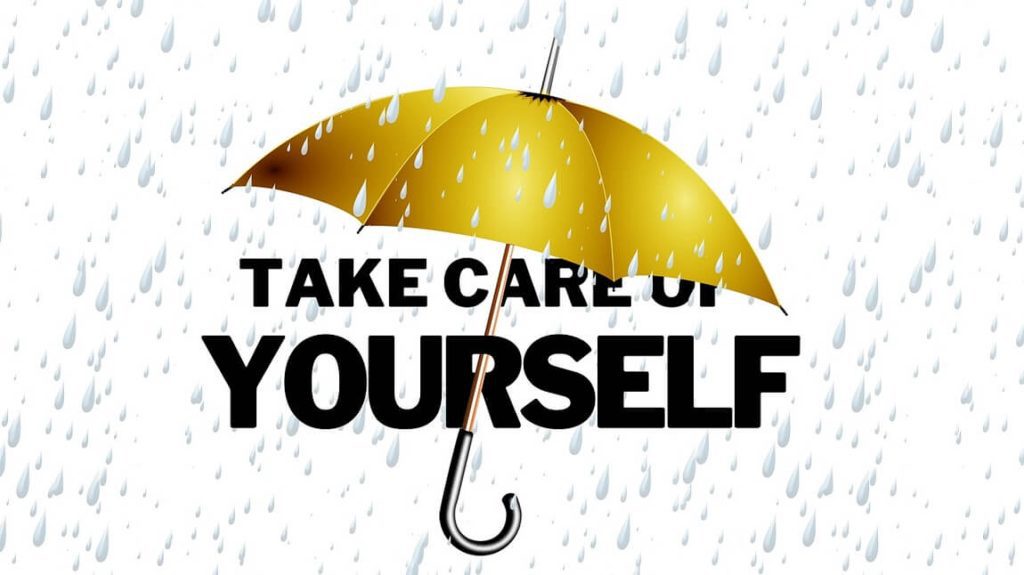Some tips for balancing caregiving and self-care include setting boundaries and asking for help, prioritizing your own needs and well-being, seeking support from others and joining a support group, and practicing self-care activities such as exercise, meditation, and hobbies.
Table of Contents
Being a caregiver is a noble and selfless role, but it can also be challenging and overwhelming. Balancing the responsibilities of caregiving with taking care of yourself is essential for your health and well-being. In this guide, we will discuss the importance of self-care, strategies for finding balance, and essential practices to support caregivers. By prioritizing your own needs and finding support, you can provide quality care while maintaining your own physical and emotional health. Let’s explore how you can navigate the caregiving journey while still caring for yourself.

Understanding the Challenges of Caregiving
When taking care of others, caregivers often face numerous challenges. The caregiving role entails various tasks, from meal preparation to household chores, which can be physically demanding.
Additionally, caregivers may have to balance their responsibilities, such as work and personal life, with caregiving duties. Moreover, caring for individuals with chronic illnesses can take an emotional toll, leading to feelings of exhaustion and hopelessness. The chronic stress of caregiving can even contribute to high blood pressure and a diminished quality of life. Understanding these challenges is the first step toward finding a healthy balance.
Importance of Self-Care in Caregiving
Taking care of your health and well-being as a caregiver is crucial. Just like when you’re on an airplane and the flight attendant reminds you to put your oxygen mask on first before assisting others, prioritizing self-care allows you to provide quality care to your loved ones.
By attending to your physical health, seeking emotional support, and making time for personal needs, you can maintain a healthy balance. Remember, caring for others starts with caring for yourself.
Strategies for Balancing Caregiving and Self-Care
To balance caregiving and self-care, it is important to establish strategies that work for you. One effective approach is to delegate tasks to lighten the caregiving responsibilities. Enlist the help of family members, friends, or professionals to assist with certain caregiving tasks, allowing you to focus on your well-being.
Setting clear boundaries and learning to say no also play a significant role in maintaining balance. By setting limits, you can prevent burnout and ensure a healthy balance between caregiving and personal needs.
- H3: Prioritizing Tasks and Responsibilities (100-120 words, NLP terms: caregiving responsibilities, meal preparation, household chores)
- Prioritizing your tasks and responsibilities as a caregiver is essential to avoid feeling overwhelmed. Start by identifying the most critical caregiving responsibilities, such as meal preparation and household chores, and ensure they are completed first. By focusing on these essential tasks, you can reduce stress and create a sense of accomplishment. It may also be helpful to break larger tasks into smaller, more manageable steps. By prioritizing your caregiving responsibilities, you can find a healthy balance between caring for others and caring for yourself.
- H3: Time Management Techniques (100-120 words, NLP terms: daily routine, first step, significant difference)
- Effective time management is key to balancing caregiving and self-care. Establishing a daily routine can provide structure and stability, ensuring that important tasks and personal needs are prioritized. Begin by identifying the first step you need to take each day to set a positive tone. Whether it’s starting the day with deep breathing exercises or enjoying a cup of tea, this first step can make a significant difference in your overall well-being. The key is to find a routine that works for you and allows you to balance caregiving responsibilities with self-care.
Essential Self-Care Practices for Caregivers
Engaging in regular self-care practices is vital for caregivers to recharge and take care of their own needs. Deep breathing exercises can help reduce stress and promote relaxation. Taking a warm bath can provide a soothing escape from the responsibilities of caregiving. Engaging in physical activity, such as short walks, yoga, or other forms of exercise, can boost your energy levels and promote physical health.
Lastly, ensuring you get enough sleep and rest is essential for maintaining your overall well-being. Incorporating regular exercise, deep breathing exercises, warm baths, and enough sleep into your routine will support your physical and emotional health.
- H3: Physical Self-Care (100-120 words including 3-4 bullet points, NLP terms: physical health, regular exercise, short walks, plenty of water)
- Taking care of your physical health is vital as a caregiver. Remember to prioritize regular exercise, such as going for short walks or engaging in activities you enjoy, to maintain physical fitness. Staying hydrated by drinking plenty of water throughout the day is essential for your overall well-being. Additionally, paying attention to your nutrition and consuming a healthy, balanced diet can support your physical health. By prioritizing physical self-care, you can better care for others while maintaining your well-being.
- H3: Emotional and Mental Self-Care (100-120 words including 3-4 bullet points, NLP terms: trusted counselor, deep breathing, meditation, emotional support)
- Supporting your emotional and mental well-being is just as important as taking care of your physical health. Consider seeking support from a trusted counselor or therapist who can provide guidance and help you navigate the emotional challenges of caregiving. Engaging in deep breathing exercises or meditation can offer moments of calm and relaxation, reducing stress and promoting mental health. Lastly, don’t hesitate to reach out to friends, family, or support groups for emotional support. By prioritizing emotional and mental self-care, you can better care for yourself while caring for others.
Seeking External Help
As a caregiver, it’s important to recognize that seeking external help is not a sign of weakness, but a way to ensure you have the support you need. Consider joining caregiver support groups, where you can connect and share experiences with others who understand your challenges. Social workers or counselors can also provide valuable guidance and support.
Pursuing additional support, such as respite care, can provide caregivers with short-term relief and much-needed time for themselves. Don’t hesitate to reach out and explore the resources available to support you in your caregiving journey.
- H3: Utilizing Caregiver Support Groups (100-120 words, NLP terms: caregiver support groups, social worker)
- Caregiver support groups can be a valuable source of support and understanding for caregivers. Connecting with others who are going through similar experiences can provide a sense of belonging and reduce feelings of isolation. These groups offer a safe space to share your challenges, seek advice, and find emotional support. Additionally, social workers or counselors can provide professional guidance and resources to assist caregivers in managing their responsibilities effectively. Embrace the support of caregiver support groups and social workers to navigate the caregiving journey with confidence and support.
- H3: When to Consider a Professional Caregiver (100-120 words, NLP terms: professional caregiver, quality care, medical treatment)
- There may come a time when the caregiving responsibilities become overwhelming and additional support is needed. At such times, considering a professional caregiver can provide you with peace of mind, knowing your loved one is receiving quality care. Professional caregivers have training and expertise in providing care for individuals with specific needs. If your loved one’s care requires medical treatment or specialized care beyond your capabilities, a professional caregiver may be the best option. Assess your loved one’s needs and consult with medical professionals to determine if a professional caregiver is necessary for their well-being.
Maintaining Your Personal Life
Maintaining a personal life outside of caregiving is essential for your well-being. Make time for personal care, engaging in activities that bring you joy and fulfillment. Pursue hobbies or interests that allow you to recharge and nourish your own needs.
Cultivate social connections and spend quality time with family and friends, nurturing those important relationships beyond caregiving. By setting aside time for yourself and keeping your personal life alive, you can create a healthy balance between caregiving responsibilities and your well-being.
- H3: Setting Aside Time for Yourself (100-120 words, NLP terms: personal care, hobbies, own needs)
- Carving out dedicated time for yourself is crucial in maintaining a healthy balance as a caregiver. Prioritize personal care activities, such as taking care of your physical health, practicing self-compassion, and attending to your own needs. Engage in hobbies or activities that bring you joy and happiness, allowing you to recharge and de-stress. Remember, caring for others is essential, but caring for yourself is equally important. By setting aside time for yourself, you can nurture your own needs, recharge, and continue providing quality care to your loved ones.
- H3: Keeping Relationships Strong (100-120 words, NLP terms: family member, clear boundaries, emotional support)
- Nurturing personal relationships, especially with family members, is crucial for caregivers’ well-being. Communicate your boundaries, needs, and limitations to your family members, ensuring they understand and respect your caregiving responsibilities. Seek emotional support from trusted family members, friends, or support groups, as they can provide you with a listening ear, guidance, and empathy. Prioritizing these relationships and maintaining clear boundaries will allow you to balance caregiving with personal connections, fostering a healthy and fulfilling lifestyle.
Embracing the Journey of Caregiving
Embracing the journey of caregiving requires compassion and dedication, both for others and for yourself. Recognize the significance of the role you play in improving the quality of life for your loved ones.
Understand that self-care is not selfish, but rather a necessary part of being an effective caregiver. By prioritizing your health and well-being, you are better able to care for others. Embracing mindfulness and self-compassion allows you to navigate the challenges of caregiving while finding moments of joy, fulfillment, and recharge along the way.
Conclusion
Taking care of yourself while caring for others is not selfish; it’s necessary. Balancing caregiving responsibilities with self-care is essential for your well-being and the well-being of those you care for. Remember that you cannot pour from an empty cup, so prioritize self-care to ensure you have the energy and emotional resilience to be the best caregiver you can be.
By understanding the challenges of caregiving, recognizing the importance of self-care, and implementing strategies to balance both, you can create a healthier and more sustainable caregiving journey. Seek external help when needed, maintain your personal life, and embrace the ups and downs of caregiving with compassion and grace.
Remember, taking care of yourself is not a luxury, but a necessity. Your well-being matters, and by prioritizing self-care, you can continue to provide the love and support your loved ones need.

Leave a Reply